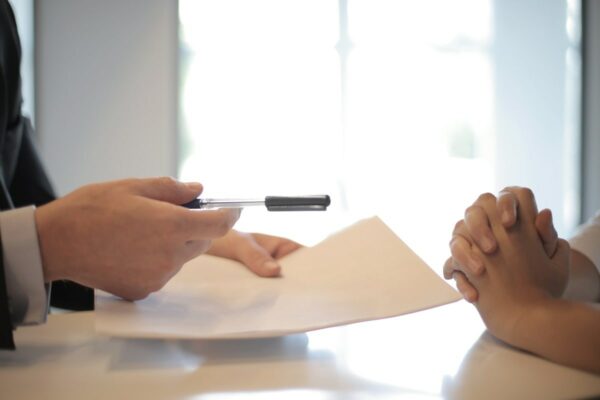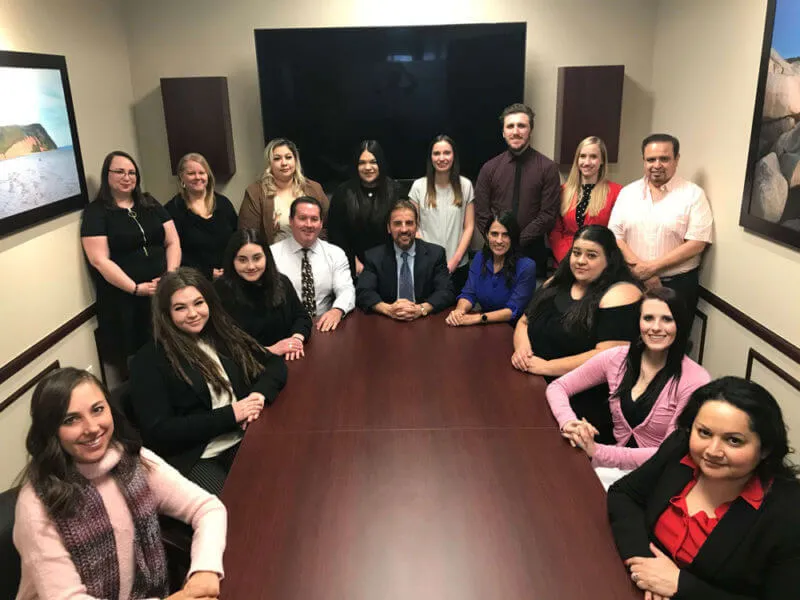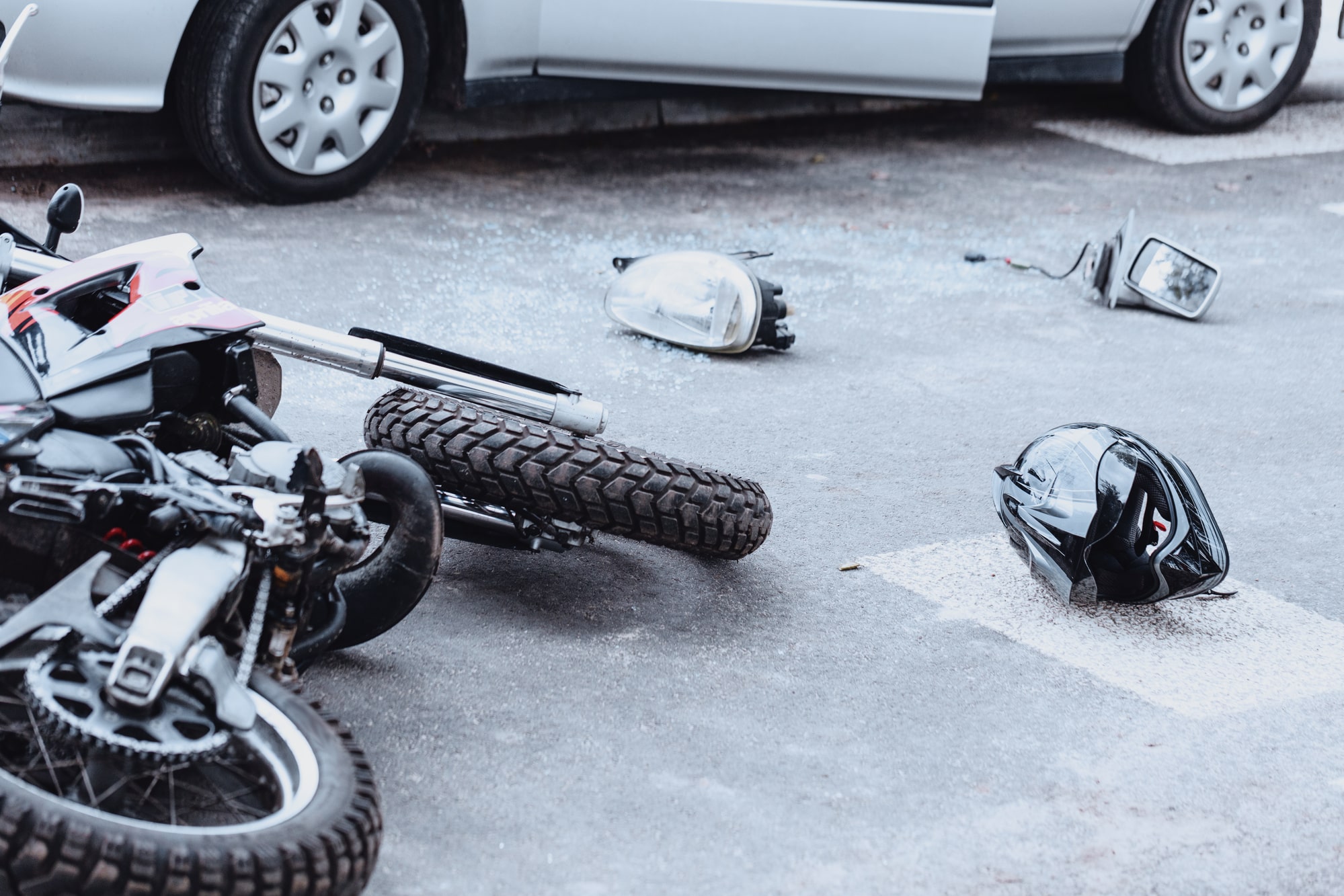How to Negotiate with a Utah Insurance Adjuster
Being injured in a car accident, motorcycle accident, or other motor vehicle accident can result in significant losses and damages. In addition to your physical injuries and emotional stress, you also may incur substantial financial losses.
If an insurance adjuster for the other party contacts you to discuss the accident, it’s important to know how to properly negotiate your claim.
9 Tips for Negotiating with a Utah Insurance Claims Adjuster
- Do Not Accept the First Offer You Receive from a Utah Insurance Adjuster
- Thoroughly Document Your Damages and Losses for the Claims Process
- Make Sure You Know the Insurance Policy Limits for the Policyholder
- Calculate the Value of Your Auto Accident Claim Including Property and Casualty Claims
- Ask for a Larger Settlement Amount Than You Want for Casualty Claims
- Always Demand a Written Settlement Offer and Agreement from a Utah Insurance Adjuster
- Ask the Insurance Adjuster for a Written Justification of the Offer
- Limit Yourself to One Counteroffer During the Claims Process
- Work with an Experienced Personal Injury Attorney Utah
Before you interact with an insurance adjuster in Utah, it helps to understand the role of the insurance company in a Utah personal injury claim process. The insurance company for the other driver provides property and casualty insurance for its policyholder.
Property insurance applies to the vehicle damage in a car accident Utah, and casualty insurance applies to the bodily injury of accident victims. When a driver causes an accident, the insurance company is liable for payment of damages up to the policy limits.
However, insurance companies are businesses. They do not make money by paying Utah automobile insurance claims. Therefore, insurance companies will always act in their best interest, meaning they will try to pay as little as possible to settle your personal injury claim.
What Does a Utah Insurance Adjuster Do?
Whether you’re in Salt Lake County, Utah County or down in St. George, the process is similar as insurance claims adjusters investigate property and casualty claims filed with insurance companies.
The insurance adjuster assigned to your claim may inspect property damage, review accident reports, interview witnesses, review medical records, and review evidence of financial losses. The company may refer to this person as a staff adjuster, insurance appraiser, or insurance inspector.
It is important to remember that a staff adjuster does not work for you. The staff adjuster works for the insurance provider. It is his job to protect the best interests of the insurance company, which typically means working to pay as little as possible to settle your Utah insurance claim.
The insurance company may also use independent adjusters. Independent adjusters in Utah are not employees of the company. However, an independent insurance adjuster represents the company as an independent contractor and protects the company’s best interest in the same way as staff claim adjusters.
An insurance provider may hire an independent adjuster when they have a high number of insurance claims, or they need claims adjusters who specialize in certain insurance claims adjusting.

A public adjuster is an independent contractor who works for the policyholder or the claimant. Some individuals hire a public adjuster to represent them during the claims process.
The public adjuster calculates the value of the claim and negotiates with the insurance company. If you hire a public adjuster, you should always verify the adjuster’s license.
Most states require a public adjuster to obtain a license to operate within the state. You can check with your state licensing board to determine the licensing requirements for public adjusters in your state.
Hiring a public adjuster with a license can give you peace of mind that you are dealing with a person who has been through the licensing process to obtain the required state license to represent claimants in property casualty claims.
However, it is important to keep in mind that you may need to hire a personal injury attorney if the public adjuster cannot settle the claim. Because you are responsible for paying the fee for a public adjuster, hiring a public adjuster before consulting a personal injury attorney could increase the costs of settling a property casualty claim.
When you are negotiating an auto accident claim, the important thing to remember is that the claims adjuster does not represent you. You must always keep your best interests in mind when dealing directly with an insurance adjuster to settle your personal injury claim.
1. Do Not Accept the First Offer You Receive
Your claims adjuster may offer a settlement very early in your case. If so, you need to be very cautious about accepting this offer. The insurance company may want to settle your injury claim before you understand the full extent of your injuries. Once you settle your claim, you cannot recover additional money, even if you discover you have additional losses or injuries.
You should not accept the first settlement offer without attempting to negotiate a higher amount. The insurance claims adjuster typically begins by offering an amount at the lower end of the value scale. If you reply with a counteroffer, you may receive a higher amount for your accident claim.

2. Thoroughly Document Your Damages and Losses for the Claims Process
The insurance provider only compensates you for financial losses that it can verify through receipts, invoices, bills, and loss of income statements. By carefully documenting each expense, cost, and loss associated with the accident, you can increase the value of your accident claim.
Be sure to document all of your injuries. Take pictures of your injuries throughout your recovery and keep a daily journal of your pain and suffering. This can help you when you are negotiating the compensation for your non-economic damages.
Non-economic damages include your physical, mental, and emotional pain and suffering. It also includes compensation for scarring, disfigurement, permanent impairments, and loss of enjoyment of life. A pain and suffering journal allows you to detail the emotional and physical suffering and struggles you experience because of the accident.

3. Make Sure You Know the Insurance Policy Limits for the Policyholder
You should request written confirmation of the insurance policy limits from the insurance agent or the insurance adjuster. The company is only liable for payment of a claim up to the policy limits. Damages that exceed the policy limits are the responsibility of the policyholder.
Unfortunately, it can be very difficult to collect compensation directly from an individual. If your Utah insurance claim exceeds the policy limits, you may want to consult a personal injury attorney before proceeding with settlement negotiations.
4. Calculate the Value of Your Auto Accident Claim Including Property and Casualty Claims
Before you discuss your claim with an insurance claims adjuster, you should calculate the value of your accident claim. In most cases, an accident claim includes three different types of damages:
Utah Property Damage Claims
Property damage claims include the physical damage to your vehicle. If your vehicle cannot be repaired, you are entitled to receive compensation that is equal to the fair market replacement cost of your vehicle.
If the auto damage to your vehicle can be repaired, it is a good idea to obtain multiple repair estimates from auto damage appraisers before filing property claims. Most appraisers do not charge a fee for an estimate.
By comparing the estimates and the work to be performed according to several auto damage appraisers, you can ensure that a repair facility does not miss any property damage.

Personal Financial Losses in Utah
Financial losses include your actual out-of-pocket expenses and damages related to the accident. Examples include medical bills, lost income, travel expenses, help with household chores, and medications. You need to keep careful records to prove your financial losses.
Non-Economic Damages
Non-economic damages are more difficult to prove. Very few states have guidelines or formulas for calculating pain and suffering damages. Many insurance companies will agree to an amount that is equal to two to three times the amount of financial losses to settle a claim for non-economic damages.
5: Ask for a Larger Settlement Amount Than You Want to Receive for Casualty Claims
Can you negotiate with an insurance adjuster? Yes, you certainly can.
Most insurance adjusters calculate a range for the value of an accident claim. Before you begin negotiating with an insurance claims adjuster, you should also calculate a range for the value of your claim, including the lowest amount you are willing to accept for your claim.
You need to know the lowest amount you will accept to settle your claim before you begin discussing a settlement with the claims adjuster. You need to be able to walk away if the insurance adjuster does not agree to your minimum settlement amount.
You always want to begin negotiating by asking for an amount at the high end of your value range. It is important to have some room to negotiate downward because the claim adjuster will likely counteroffer with a lower amount.

6. Always Demand a Written Settlement Offer and Agreement from the Insurance Adjuster
All settlement offers and counteroffers should be in writing. It is extremely difficult to enforce a verbal settlement offer from an automobile insurance adjuster.
If the settlement offer is not in writing, the insurance company could change the terms of the settlement agreement at the last minute. You can avoid these problems by requiring all offers and counteroffers be made in writing.
7. Ask the Insurance Adjuster for a Written Justification of the Offer
It is also a good idea to request a written justification for a settlement offer. With a written justification, you can review the breakdown of the offer and the reasoning for the offer.
The adjuster may have overlooked an important element of your claim. By reviewing the written justification, you might pinpoint some factors that the insurance adjuster missed when calculating the value of the insurance claim.
8. Limit Yourself to One Counteroffer During the Claims Process
A tactic used by some insurance adjusters is to use multiple counteroffers to significantly reduce the settlement amount to an amount below the actual value of the claim.
If you are unable to settle your auto accident claim with one counteroffer to the insurance company, you may want to consider working with a personal injury attorney.
An insurance company may try to drag out the claims process by issuing multiple counteroffers until the statute of limitations for filing a personal injury lawsuit expires.
If the deadline to file a lawsuit expires, you cannot pursue legal action against the driver or other responsible parties to recover compensation for your damages.
An insurance adjuster who continues to issue multiple counteroffers is probably not interested in settling your claim for a fair and just amount.
9. Work with an Experienced Personal Injury Attorney in Utah
There are some situations in which you may want to work with an experienced personal injury attorney in Utah from the beginning of your case. Two of the most challenging situations for an auto accident victim is when the person sustains traumatic injuries and when liability is disputed.
If you sustained traumatic injuries or permanent injuries, it is wise to contact a personal injury attorney Utah before discussing your claim with an insurance claims adjuster.
Catastrophic injury cases can be difficult to negotiate because they often involve ongoing medical expenses and future lost wages. An experienced personal injury attorney understands the complexities involved in calculating the value of injury cases involving future damages.
In many cases, the attorney works with financial, medical, and economic experts to determine the anticipated future damages to include in a settlement claim.
If a car insurance adjuster denies liability for the claim, you want to contact a Utah personal injury attorney immediately. Proving liability for a motor vehicle accident may involve conducting a physical investigation of the accident scene, interviewing eyewitnesses, hiring an accident reconstructionist, and hiring professionals to examine the damage to the automobile or motorcycle.
A motorcycle accident Utah can be deadly and must be handled by an experienced legal team. A personal injury attorney has the resources and knowledge to conduct a comprehensive accident investigation to discover the cause of the accident. They will be able to gather and preserve evidence and identify the parties liable for damages.

Contact Acadia Personal Injury Attorneys for More Information About Auto Accident Claims in Utah
An insurance company has a team of industry professionals that work to protect the company’s best interest. You might deal with an independent insurance adjuster, damage appraisers, adjusting companies, investigators, claim examiners, and other professionals who represent the insurer. You deserve to have a team of legal professionals on your side who are protecting your best interests during the claims process.
If you have been injured in an automobile accident, it can be difficult to know what to do after a car accident. The experienced personal injury lawyers of Acadia Law Group help accident victims file and settle accident claims. Contact us today for more information.




